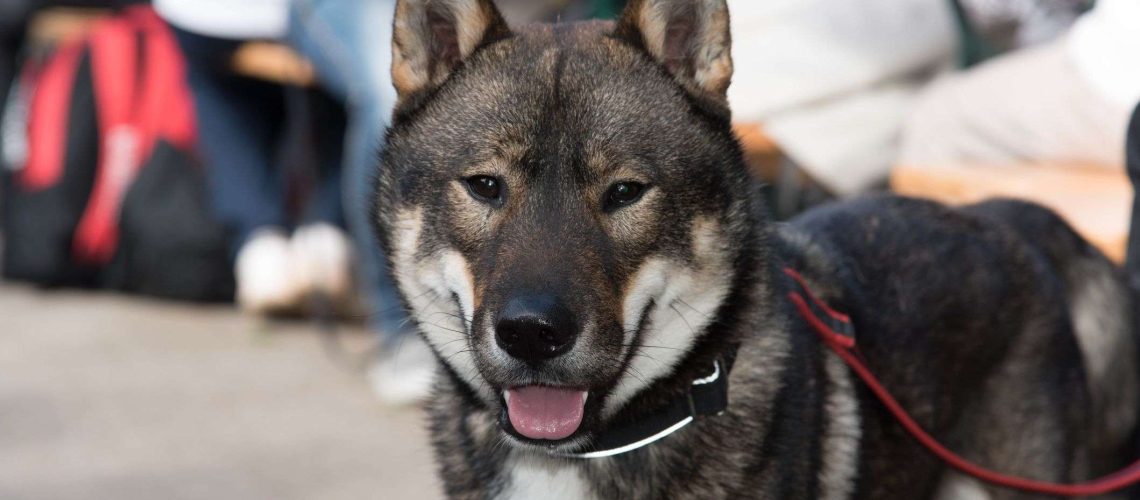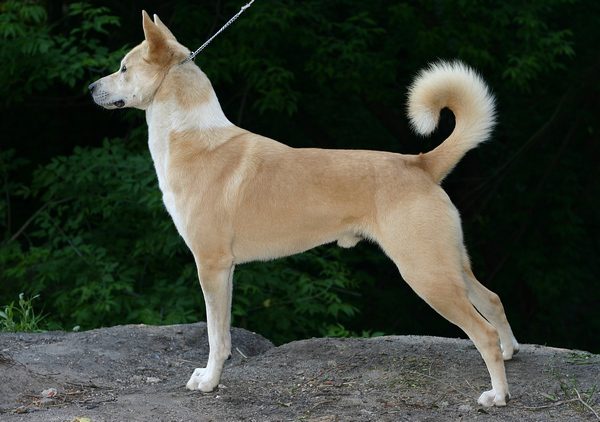Key Takeaways:
- Shikoku dogs are a medium-sized breed known for their strong and agile bodies.
- They have a loyal and protective nature, making them excellent guard dogs.
- Regular exercise is essential for Shikoku dogs to keep them physically and mentally stimulated.
- Proper socialization from an early age is crucial to ensure they get along well with other pets and people.
- Grooming needs of Shikoku dogs are minimal, with occasional brushing to maintain their coat's health and cleanliness.
Are you curious about Shikoku dogs? These adorable and loyal companions have a rich history and unique characteristics that make them stand out from other breeds. Understanding the ins and outs of caring for a Shikoku can bring immense joy and fulfillment to your life. Not only will you gain a loving and devoted furry friend, but you'll also become part of an exclusive group of dog owners who appreciate the beauty and intelligence of this breed. So, whether you're considering getting a Shikoku or simply want to learn more about these fascinating creatures, join us as we explore the world of Shikoku: Dog Breed Characteristics & Care. Get ready to embark on an exciting journey filled with fun facts, helpful tips, and heartwarming stories that will deepen your appreciation for these incredible dogs. Let's dive in!
What is Shikoku, and what makes it special?
Shikoku is a Japanese breed of dog that originated on the island of Shikoku. It is one of the oldest and rarest native Japanese dog breeds. The Shikoku dog is known for its loyalty, intelligence, and strong hunting instincts.
The Shikoku dog has a muscular build and a sturdy frame. It has a thick double coat that comes in various colors such as red, sesame, and black. The breed has almond-shaped eyes that are usually dark brown or black. Its ears are small and erect.
Why is Shikoku special?
One of the things that make the Shikoku dog special is its strong connection to Japanese culture and history. It has been used for centuries by hunters in Japan to track and hunt wild boar and deer. The breed's ability to navigate through rough terrains and its keen sense of smell make it an excellent hunting companion.
In addition to its hunting abilities, the Shikoku dog is also known for its loyalty and devotion to its family. It forms strong bonds with its owners and will do anything to protect them. This makes it an excellent guard dog.
Fun fact:
- The Shikoku dog was designated as a Natural Monument of Japan in 1937.
What does a Shikoku dog look like?
A typical Shikoku dog has a medium-sized body with well-developed muscles. It stands at about 17-21 inches tall at the shoulder and weighs between 35-55 pounds. The breed has a balanced appearance with a proportionate head, body, and tail.
The head of a Shikoku dog is broad and slightly rounded. It has a strong muzzle and a well-defined stop. The eyes are small, almond-shaped, and dark brown or black in color. The ears are triangular and stand erect.
The Shikoku dog has a thick double coat that helps protect it from harsh weather conditions. The outer coat is straight and coarse, while the undercoat is soft and dense. The breed comes in various colors including red, sesame (red with black-tipped hairs), and black.
Distinctive features:
- Muscular build
- Small, almond-shaped eyes
- Erect ears
- Thick double coat
What is the personality of a typical Shikoku dog?
A typical Shikoku dog is known for its intelligence, independence, and loyalty. It has a strong hunting instinct and can be quite reserved with strangers. However, it forms deep bonds with its family members.
Shikoku dogs are highly energetic and require regular mental and physical stimulation to prevent boredom. They thrive in an environment where they have tasks to complete or activities to engage in. This breed is not recommended for first-time dog owners as it requires experienced handling.
While the Shikoku dog can be independent-minded, it responds well to consistent training methods that use positive reinforcement techniques. Early socialization is important to ensure that the dog grows up to be well-rounded and friendly towards other animals and people.
Key personality traits:
- Intelligent
- Loyal
- Energetic
- Independent-minded
How much exercise does a Shikoku dog need every day?
A Shikoku dog is an active breed that requires a significant amount of exercise every day. Ideally, it should have at least 1-2 hours of vigorous physical activity to keep it mentally and physically stimulated.
Activities such as long walks, jogging, hiking, and playing fetch are great ways to fulfill the exercise needs of a Shikoku dog. It is important to provide both mental and physical challenges to prevent boredom and destructive behavior.
In addition to physical exercise, the Shikoku dog also benefits from engaging in obedience training, agility courses, or other mentally stimulating activities. This breed thrives when given tasks to complete or puzzles to solve.
Tips for exercising a Shikoku dog:
- Provide at least 1-2 hours of vigorous exercise daily
- Vary the activities to keep the dog mentally stimulated
- Consider enrolling in obedience training or agility classes
Are there any health issues to watch out for in Shikoku dogs?
Overall, Shikoku dogs are considered a healthy breed with no major breed-specific health issues. However, like all dogs, they can be prone to certain conditions that are common among canines.
Some health issues that may affect Shikoku dogs include hip dysplasia (a condition where the hip joint doesn't develop properly), patellar luxation (dislocation of the kneecap), and allergies. Regular veterinary check-ups and maintaining a healthy diet and exercise routine can help minimize the risk of these conditions.
It is also important to provide proper dental care for your Shikoku dog by regularly brushing its teeth and providing appropriate chew toys to prevent dental problems.
Common health issues:
- Hip dysplasia
- Patellar luxation
- Allergies
How should you groom a Shikoku dog?
Grooming a Shikoku dog is relatively low maintenance. The breed has a thick double coat that sheds moderately throughout the year and heavily during seasonal shedding periods.
To keep the coat in good condition, regular brushing is recommended. This helps remove loose hair and prevents matting. During shedding seasons, more frequent brushing may be necessary to manage the increased amount of loose hair.
Bathing should be done as needed, typically every few months or when the dog gets dirty. It is important to use a gentle dog shampoo that won't strip the natural oils from the coat and skin.
In addition to coat care, other grooming tasks for a Shikoku dog include nail trimming, ear cleaning, and teeth brushing. Regularly checking and cleaning the ears can help prevent infections, while maintaining proper dental hygiene contributes to overall health.
Tips for grooming a Shikoku dog:
- Regular brushing to manage shedding
- Bathe as needed with gentle dog shampoo
- Trim nails regularly
- Clean ears and brush teeth regularly
Tips for training your Shikoku dog
Training a Shikoku dog requires patience, consistency, and positive reinforcement techniques. This breed is intelligent but can be independent-minded at times. Here are some tips to help you train your Shikoku dog effectively:
- Start training early: Begin training your Shikoku dog as soon as you bring it home. Early socialization and basic obedience training are important to shape its behavior and ensure it grows up to be well-behaved.
- Use positive reinforcement: Reward-based training methods work best with Shikoku dogs. Use treats, praise, and playtime as rewards for good behavior. Avoid harsh punishments or negative reinforcement techniques.
- Be consistent: Establish clear rules and boundaries from the start and be consistent in enforcing them. Shikoku dogs respond well to routine and consistency.
- Provide mental stimulation: In addition to physical exercise, engage your Shikoku dog in mentally stimulating activities such as puzzle toys or obedience training. This helps keep its mind sharp and prevents boredom.
Remember that every dog is unique, so adjust your training approach based on your Shikoku dog's individual needs and personality.
In conclusion, Shikoku dogs are a loyal and intelligent breed known for their strong hunting instincts. Taking care of them involves regular exercise, proper grooming, and providing a loving environment to keep them happy and healthy.
Do Shikoku dogs bark?
Due to their vocal nature, Shikoku Kens are not suitable for apartment living as they have a tendency to growl instead of bark. While these growls are typically not meant to be aggressive, they can be misinterpreted by both humans and other dogs. Therefore, this breed is not recommended for dog parks.
What is the purpose of the Shikoku dog?
The Shikoku breed originated from medium-sized dogs that were present in ancient Japan. They were specifically bred to be hunting dogs, primarily used for hunting boar in the mountainous regions of Kochi Prefecture.
Are Shikoku hypoallergenic?
Due to their thick double coat, the Shikoku breed is not hypoallergenic. It is recommended to brush their coat at least once a week in order to maintain its shiny and healthy appearance.
How much does a Shikoku dog cost?
The Shikoku breed is still very uncommon outside of Japan, which means that the prices of puppies are higher. It may be difficult to find breeders in North America, but you should expect to pay a minimum of $800. The price can vary depending on various factors, and some Shikoku dogs can even be sold for as much as $5000.
Are Shikokus aggressive?
Shikoku dogs are not known for being aggressive, but they can be selective when it comes to interacting with other dogs and may not tolerate those they have not accepted. Barriers such as leashes or fences can add to their frustration. When encountering unfamiliar dogs while on a leash or separated by a fence, Shikoku dogs may exhibit behavior such as barking loudly and lunging.
Are Shikoku dogs friendly?
Shikoku dogs can be excellent companions for experienced owners, but they are not recommended for households with young children or other pets. This breed can be protective and may display aggression if not trained properly and consistently.

















